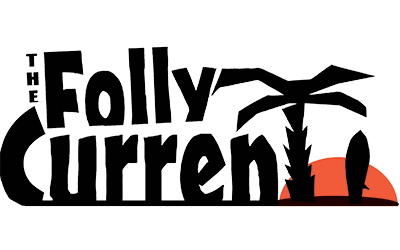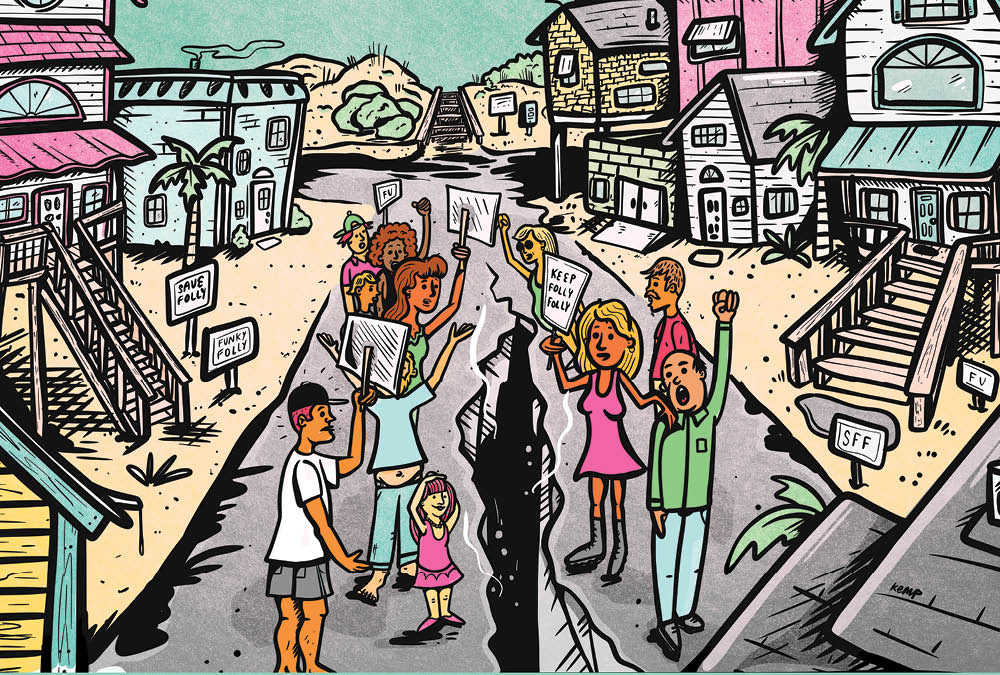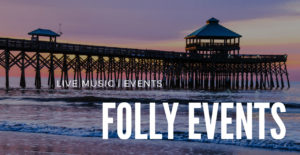A vote on capping short-term rentals has pit neighbors against one another
by Jenny Peterson | Current Staff Writer
When Folly Beach administrator Aaron Pope gets to work these days, he can almost guarantee that he’ll be fielding phone calls and emails from residents and property owners, all with concerns over a looming Feb. 7 vote at the ballot on whether to cap short-term rental licenses at 800 island-wide on non owner-occupied properties. They want to know what it would mean for them and their property.
“If someone asks, how many (current) licenses are there? We can give that number,” Pope said. “But when people say, ‘What is this going to do to my property values?’ We have to politely say, ‘I’m sorry, we can’t comment.’ We’ve been really constrained in what we can say and make an effort to not influence the outcome (of the vote).”
Pope then checks social media pages, which have become increasingly contentious over the issue, with mud-slinging, personal attacks, accusations of yard sign theft and pleas for pity, such a posts showing photos of workers who have jobs thanks to short-term rentals, to name a few.
“I read all the comments about everything (in case) there’s some legitimate concern in here that we need to be prepared to answer,” Pope said.
It’s a similar experience for city administrators in countless municipalities that have seen a proliferation of short-term rentals popping up in town limits. Cities across the world are scrambling to find various and creative ways to balance quality of life of full-time residents with property rights.
Folly Beach Mayor Tim Goodwin previously stated that the topic of whether or not to cap short term rentals is on par with the contentiousness surrounding the council’s decision to ban alcohol on the beach in 2012 and its decision to close the beach during the height of the COVID-19 pandemic.
Yet, the short-term rental issue is unique in that a citizen-led petition that will spur a vote has pitted many full-time residents and second homeowners against one another. It’s the fight for quality of life for full-time residents (495 residents who signed the petition for a cap) versus financial gains for second-homeowners—and even some who fall into both categories at the same time.
In May of this year, it was reported by city staff that there were 1,019 fully licensed and registered short-term rentals on the island and 2,600 total parcels—just under 50 percent of the island.
If the vote on the cap passes, existing short-term rentals are essentially grandfathered in and it would take several years to lower that number to 800 licenses, either when a house sells or the operator either loses their license due to violations or doesn’t re-apply.
Many residents say that unlimited short-term rentals are displacing long-term renters as property owners take advantage of more lucrative opportunities at the detriment of the neighborhood.
Those opposed to the cap said it would negatively affect property values, including how short-term rental licenses wouldn’t be able to be transferred to heirs who take over as owners or to new buyers. Many have stated that potential home buyers have already pulled out of home sales due to the looming vote.
Those against the cap also say the short-term rental income is vital to them being able to live on Folly Beach themselves either now or in the future.
Many homeowners have aligned themselves with one of two opposing camps. On one side there is Folly United, a group who stands against a cap on short-term rentals. The other camp is spearheaded by two community groups — Save Folly’s Future and Folly Beach Residents Association, both whom are in support of a cap on short-term rentals.
Posts on social media have accused one another of taking down yard signs for the opposition, threats and name-calling.
Trust between the sides has degraded so much that no one from the Save Folly’s Future chose to attend a debate on the issue hosted by Folly United.
“I did reach out and went down yesterday and spoke yesterday to John McFarland with Save Folly’s Future at their tent and he declined to participate,” said the debate moderator. “I left a voicemail with someone with the Folly Beach Resident’s Association and they did not return my call.”
Tom Powers, a member of Folly United and one of the organizers of the debate, stated that the debate was spurred by a local restaurant manager who wanted to get both sides of the issue.
“She found herself in the middle of it and confused about some of this stuff and disheartened by the agitation, which I think a lot of us are,” said Powers. “We thought a debate was a good idea. Leadership of that side has declined to come to it for whatever various reasons.”
Speakers at the debate—who had seven minutes of uninterrupted time to say their piece or read prepared statements—were fiercely protective of their livelihoods and pocketbooks. Most who spoke at the meeting were real estate agents, most of whom live on Folly Beach, and short-term rental owners who live off-island and say they visit often, but also benefit significantly from short-term rental business.
Folly’s long History of
Short-term Rentals
Obtaining a short-term rental license on Folly Beach has never been restricted before, according to City Administrator Pope. From the 1990s and even before, there was only a requirement to get a business license and pay a tax in order to operate a short-term rental.
“There were no city rules on operating rentals,” Pope said.
Fred Holland Realty, a longtime Folly Beach institution, has been operating vacation rentals since 1976. They still rent second homes during the summer months and manage longer-term rentals for winter months.
“I think (they offered) traditionally weekly rentals, but that was purely their policy; it was not anything the government did to say you could have only weekly rentals,” Pope said.
Around 2010—a year after popular short-term rental site Airbnb made its platform available for whole home rentals beyond a single room—the city of Folly Beach created a rental registration fee for the first time, which included the island’s first set of operating rules for short-term rentals.
“You had to send additional (information) to get a business license, you had to do a rental registration and give us an emergency contact,” Pope said.
Another big change occurred in 2018, when the city revised its rental registration rules and added occupancy limits and rules for special events, like no amplified music, Pope said.
Last year, the city revamped the operating rules on short-term rentals again, which increased fees and further limited the types of large events that could occur on a property. The city also hired specific code enforcement law officers to respond to violations at short-term rentals.
When the mayor failed to pass a cap on the number of short-term rentals last year, it spurred a citizen-led petition on a cap that will purportedly be determined by voters. The city passed a moratorium on obtaining new short-term rental licenses until the vote occurred.
Folly’s STR Future
It’s hard to say what will become of Folly’s short-term rental future, unless the Feb. 7 vote on a cap fails.
A lawsuit already filed by Folly East Indian Co. LLC, a real estate development company owned by Richard Brendel and Michael Riffert who operate short-term rentals, aims to challenge the legality of enforcing a cap, even if the vote goes in that favor.
The lawsuit alleges the moratorium is illegal and seeks to lift it immediately.
Pope noted in a previous interview that if the vote is in favor of a cap, the council can make specific amendments—such as allowing a short-term rental license to be passed to heirs, for example—if they see fit. The high-octane issue won’t likely go away no matter what the vote results.
“I imagine all the emails are going to come in after February 7,” Pope said.
Voting will take place Feb. 7 from 7 a.m. until 7 p.m. at Folly Beach Baptist Church, located at 77 Center St. Eligible voters are registered residents who live in Folly Beach and James Island 1A and James Island 1B.


